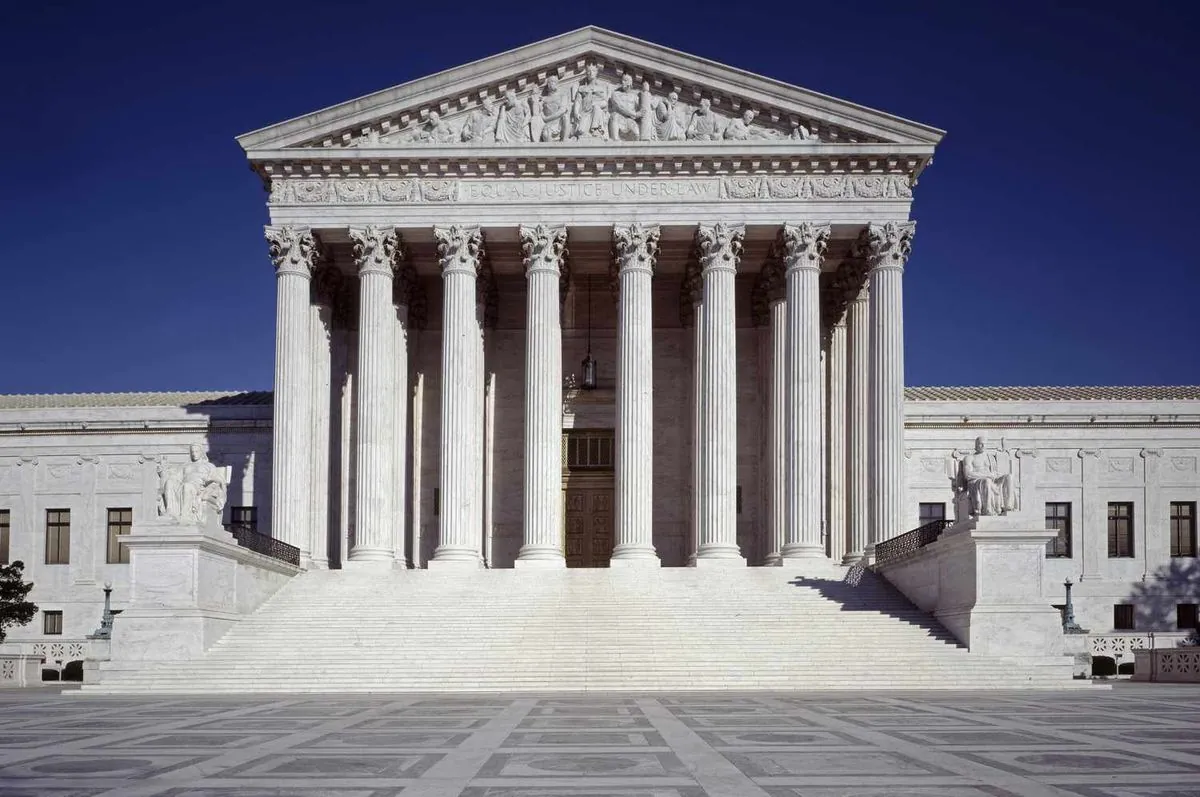U.S. Supreme Court Tackles Diverse Cases in New Term
The U.S. Supreme Court begins its new term, addressing issues from gun rights to transgender care. Key cases involve "ghost guns," online pornography, and corporate fraud allegations.

The U.S. Supreme Court is set to commence its new nine-month term on October 4, 2024, with a diverse docket of cases that will shape American law and society. The highest court in the land, established in 1789, will deliberate on matters ranging from firearms regulations to transgender rights and corporate accountability.
One of the prominent cases involves the regulation of so-called "ghost guns." The justices will evaluate the legality of a federal rule aimed at controlling these largely untraceable weapons. Arguments for this case are scheduled for October 8, 2024. This case highlights the ongoing debate between gun rights advocates and those seeking stricter firearm controls.
Nvidia and Meta (formerly Facebook) face scrutiny as the Court considers securities fraud lawsuits against these tech giants. The Nvidia case, set for November 13, 2024, concerns allegations of misleading investors about cryptocurrency-related sales. Meanwhile, Meta's case, scheduled for November 6, 2024, involves claims of mishandling user data.

The Court will also address transgender rights, examining Tennessee's ban on gender-affirming care for minors. This case underscores the ongoing national debate over LGBTQ+ rights and healthcare access. Additionally, the justices will consider the constitutionality of a Texas law requiring age verification for online pornography access, touching on First Amendment issues in the digital age.
"The freedom to criticize judges and other public officials is necessary to a vibrant democracy."
In the realm of regulatory powers, the Court will review cases involving nuclear waste storage and flavored vape products. These cases will test the authority of federal agencies like the Nuclear Regulatory Commission and the Food and Drug Administration, potentially impacting how these bodies operate in the future.
The Court's docket also includes a death penalty case involving Richard Glossip, convicted in a 1997 murder-for-hire. Scheduled for October 9, 2024, this case raises questions about prosecutorial conduct and the rights of death row inmates.
As the Court begins its term, it's worth noting that it typically receives 7,000-8,000 petitions annually but only hears oral arguments in about 80 cases. The nine Justices, who serve life terms, will deliberate on these cases in the iconic Supreme Court building, completed in 1935.
The outcomes of these cases could have far-reaching implications for American society, potentially setting new precedents in areas such as gun control, digital privacy, and corporate responsibility. As the highest court in the land – both figuratively and literally, with its courtroom on the top floor – the Supreme Court's decisions will undoubtedly shape the legal landscape for years to come.


































